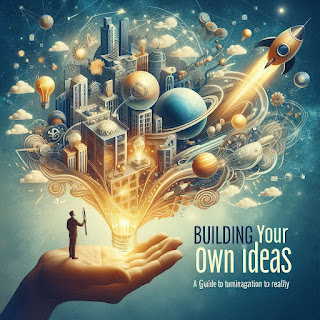Upgrading Your Skills: A Comprehensive Guide to Personal and Professional Growth
In today's fast-paced world, the demand for continual learning and self-improvement has never been more crucial. Technological advancements and shifting market trends have made it imperative for individuals to keep upgrading their skills to stay relevant and competitive. Whether you're looking to climb the corporate ladder, pivot into a new industry, or simply enhance your personal development, upgrading your skills can open doors to new opportunities and professional growth. Here’s how you can effectively upgrade your skills:
●Identify Your Goals and Objectives
Before embarking on your skill-upgrade journey, it’s essential to define clear, achievable goals. What skills do you need for your current or future roles? Are there specific competencies that your industry values? By identifying your objectives, you can create a focused and targeted plan.
●Assess Your Current Skillset
Conduct a thorough self-assessment to understand your strengths and weaknesses. Use tools like SWOT analysis (Strengths, Weaknesses, Opportunities, Threats) to evaluate your skill levels. Feedback from peers, mentors, or professional assessments can provide additional insights.
●Stay Updated with Industry Trends
Keeping abreast of the latest trends in your industry will help you identify which skills are in demand. Subscribing to industry newsletters, joining professional networks, and participating in webinars or conferences can provide valuable information on emerging trends.
●Leverage Online Learning Platforms
The rise of digital education means that upgrading your skills can be done conveniently and often at a lower cost. Platforms such as Coursera, Udemy, LinkedIn Learning, and Khan Academy offer a vast array of courses covering countless fields. Select courses that align with your goals and take advantage of their flexibility to learn at your own pace.
●Pursue Certifications and Professional Credentials
Certifications can validate your skills and make you more attractive to employers. Organizations like Google, Microsoft, and PMI offer certifications in various domains that can enhance your resume and professional credibility.
●Engage in Hands-On Practice
Skills are best learned and retained through practical application. Engage in projects, internships, or volunteer opportunities that allow you to practice new skills in real-world settings. This not only enhances your learning but also provides tangible experiences to showcase to potential employers.
●Join Professional Organizations and Networks
Being part of a professional organization or network can provide numerous opportunities for learning, mentorship, and career advancement. These organizations often offer resources such as workshops, seminars, and networking events that can contribute to your skill development.
●Seek Mentorship and Coaching
Mentors and coaches can provide personalized guidance and support tailored to your career trajectory. They can help you navigate challenges, provide constructive feedback, and share valuable insights from their own experiences.
●Develop Soft Skills
While technical skills are critical, soft skills such as communication, leadership, and emotional intelligence are equally important in today’s workplace. Investing time in developing these skills can significantly enhance your professional relationships and career prospects.
●Create a Learning Schedule
Consistency is key to effective skill acquisition. Create a learning schedule that fits into your routine. Dedicate specific times for study and practice, and stick to your plan. Setting milestones and rewarding yourself upon achieving them can help maintain motivation.
●Reflect and Adapt
Periodically review your progress and reflect on what’s working and what isn’t. Be open to modifying your learning strategies and goals as you evolve. Adaptability is an essential component of lifelong learning.
●Stay Curious and Passionate
Finally, cultivate a mindset of curiosity and passion for learning. Embrace challenges as opportunities to grow, and stay open to new experiences and knowledge. A positive attitude towards learning will not only make the process enjoyable but also more effective.
●Conclusion
Upgrading your skills is a dynamic and continuous process that can lead to significant personal and professional growth. By setting clear goals, leveraging available resources, and staying committed to your learning journey, you can equip yourself with the tools needed to succeed in an ever-evolving world. Remember, the investment you make in yourself today will pay dividends for your future.



Comments
Post a Comment